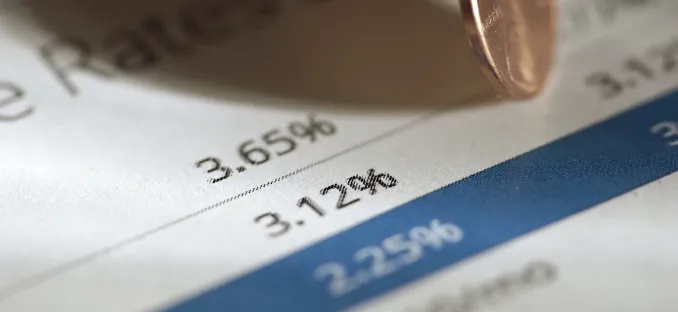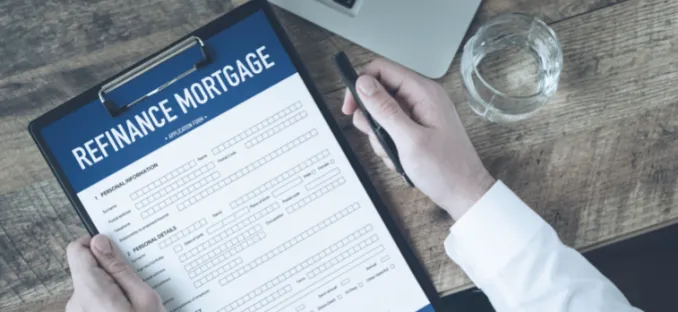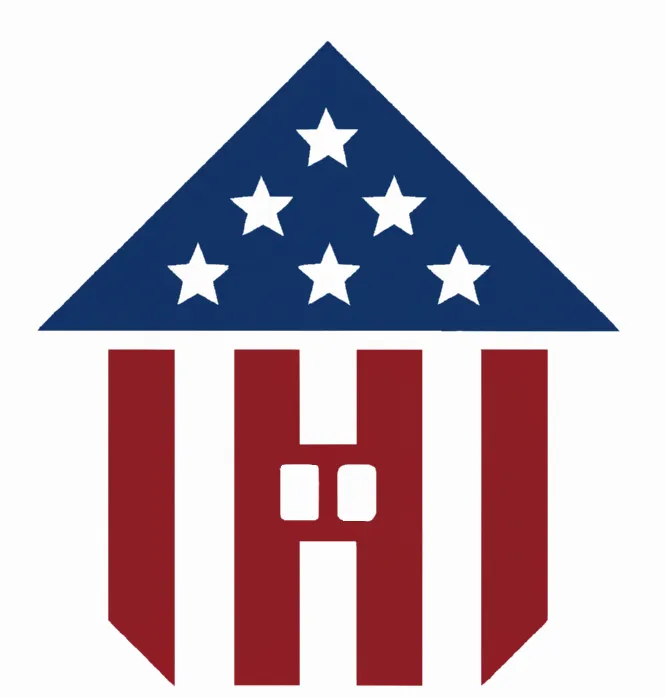Loan
Programs
Get the financing you need with our flexible loan options
Loan Programs
When it comes to choosing a home loan program, there is no "one size fits all" approach. Your unique circumstances, including your financial situation, credit history, and long-term goals, will all play a role in determining the best loan program for you.
There are many different loan programs available, each with its own set of benefits and drawbacks. Some may offer lower interest rates, while others may allow for a smaller down payment. Some may have stricter eligibility requirements, while others may be more flexible.
Ultimately, the best way to determine which home loan program is right for you is to speak with a mortgage advisor. A mortgage advisor is a professional who can help you understand your options and guide you through the process of finding and securing a loan that meets your needs.
They can help you understand the pros and cons of different loan programs and assist you in making an informed decision.
Construction Loans

Construction loans are a type of short-term loan used to finance the building or renovation of a home. These loans are typically given to builders or individuals who are planning to build a home from scratch or make significant renovations to an existing home. Construction loans often have a smaller down payment requirement than traditional mortgages and a variable interest rate. It's important to carefully consider the terms and conditions of a construction loan before committing to it, and to speak with a mortgage advisor or financial professional for guidance on the best loan option for your needs.
Home Equity Loans

A home equity loan is a type of loan that allows you to borrow against the equity in your home. Equity is the difference between the value of your home and the amount you owe on your mortgage. A home equity loan allows you to borrow a lump sum of money and make fixed monthly payments to pay it back over time. These loans are typically used for home improvement projects, debt consolidation, or other large expenses. To qualify for a home equity loan, you must have sufficient equity in your home and a good credit score. It's important to carefully consider the terms and conditions of a home equity loan before committing to it, as it may put your home at risk if you are unable to make the required payments.
Conventional Fixed Rate Mortgages

A conventional fixed rate mortgage is a type of home loan in which the interest rate remains the same for the entire term of the loan. This means that the borrower can expect the same monthly payment each month, making it easier to budget and plan for the future. Conventional fixed rate mortgages are typically available with terms ranging from 10 to 30 years. These loans are called "conventional" because they are not backed by the government, unlike FHA or VA loans. To qualify for a conventional fixed rate mortgage, borrowers typically need to have a good credit score and a down payment of at least 3-5% of the purchase price of the home.
Adjustable Rate Mortgages (ARM)

An adjustable rate mortgage (ARM) is a type of home loan in which the interest rate can change over time. The interest rate on an ARM is typically lower than that of a fixed rate mortgage at the beginning of the loan term, but it can increase or decrease at regular intervals thereafter. This means that the monthly payments on an ARM may also change over time. ARMs are typically available with terms ranging from 3 to 30 years. One of the main benefits of an ARM is that it can offer a lower initial interest rate and lower monthly payments than a fixed rate mortgage, which can be attractive for borrowers who are looking to save money in the short term. However, the risk of rising interest rates makes ARMs less predictable than fixed rate mortgages, and it's important for borrowers to carefully consider the terms and conditions of an ARM before committing to it.
Jumbo Loans

A jumbo loan is a type of mortgage that is used to finance the purchase of a home that exceeds the conforming loan limit set by government-sponsored enterprises (GSEs) like Fannie Mae and Freddie Mac. In most parts of the United States, the conforming loan limit is $548,250, but in high-cost areas, it can be as high as $822,375. If the loan amount for a home purchase exceeds the conforming loan limit, it is considered a jumbo loan. These loans typically have higher interest rates and stricter eligibility requirements than conforming loans, as they are considered to be higher risk for lenders. Borrowers who are considering a jumbo loan should be prepared to make a larger down payment and to provide more documentation to the lender to demonstrate their creditworthiness.
Refinance Mortgage Loans

A refinance mortgage loan is a type of loan that allows a borrower to replace their existing mortgage with a new one. This can be done for a variety of reasons, such as to lower the monthly payment, to switch from an adjustable rate mortgage to a fixed rate mortgage, or to cash out some of the equity in their home. To refinance a mortgage, the borrower must apply for a new loan and go through the same process as they did when they first obtained their mortgage. This includes providing documentation, going through a credit check, and paying closing costs. It's important for borrowers to carefully consider the terms and conditions of a refinance mortgage loan before committing to it, as it may not always be the best option for everyone.
FHA Mortgage Loans

An FHA mortgage loan is a type of home loan that is insured by the Federal Housing Administration (FHA). These loans are designed to make it easier for first-time homebuyers or those with low to moderate incomes to purchase a home. FHA loans typically have lower down payment requirements and more flexible credit and income guidelines than conventional loans. They also usually have lower interest rates and closing costs. To qualify for an FHA loan, borrowers must meet certain requirements, such as having a minimum credit score, demonstrating a stable employment history, and providing a down payment of at least 3.5% of the purchase price of the home. FHA loans are a popular option for first-time homebuyers and those with less-than-perfect credit.
Reverse Mortgage Loans

A reverse mortgage loan is a type of loan that allows homeowners who are 62 years of age or older to borrow against the equity in their home. Reverse mortgage loans are unique in that they do not require the borrower to make monthly payments to the lender. Instead, the loan is paid back when the borrower sells the home or passes away. Reverse mortgage loans are typically only available to homeowners who have significant equity in their home and who have paid off their mortgage or have a small remaining balance. These loans can be a good option for seniors who are struggling to make ends meet on a fixed income and who want to stay in their home but need additional financial support. However, reverse mortgage loans can be complex and it's important for borrowers to carefully consider the terms and conditions before committing to one.
VA Mortgage Loans

A VA mortgage loan is a type of home loan that is guaranteed by the Department of Veterans Affairs (VA). These loans are designed to help veterans, active military personnel, and their families purchase a home. VA loans typically have more flexible credit and income requirements than conventional loans, and they also usually have lower interest rates and no down payment requirement. To qualify for a VA loan, borrowers must meet certain eligibility requirements, such as having served in the military or being the spouse of a military member. VA loans are a popular option for military personnel and their families, as they offer a range of benefits and can make it easier to purchase a home.
Self-Employed Borrowers

Home loans for self-employed borrowers are mortgages that are specifically designed for individuals who are self-employed or who run their own business. These loans can be used to purchase a home or to refinance an existing mortgage. Self-employed borrowers may face more challenges when it comes to securing a home loan than those who are employed by a company, as lenders may be concerned about the stability and predictability of their income. As a result, home loans for self-employed borrowers may have stricter eligibility requirements and may require more documentation to demonstrate the borrower's creditworthiness and financial stability. It's important for self-employed borrowers to carefully consider the terms and conditions of any home loan they are considering before committing to it.
Borrowers With Considerable Assets

Home loans for borrowers with considerable assets are mortgages that are specifically designed for individuals who have a significant amount of assets, such as investments, savings, or other financial resources. These loans may be more flexible in terms of credit and income requirements, as the borrower's assets can serve as collateral for the loan. Borrowers with considerable assets may have an easier time securing a home loan, as they may be seen as less risky by lenders. However, it's important for borrowers to carefully consider the terms and conditions of any home loan they are considering before committing to it, as it may not always be the best option for everyone. It's also a good idea to speak with a mortgage advisor or financial professional to get a better understanding of the different loan options available and to find the one that is best suited to your needs.
Real Estate Investors

Home loans for real estate investors are mortgages that are specifically designed for individuals who are looking to purchase a property for the purpose of generating rental income or for resale. These loans can be used to finance the purchase of a single property or multiple properties, depending on the borrower's investment strategy. Real estate investor loans may have different eligibility requirements and terms than traditional home loans, as the lender is taking on more risk by lending to an investor rather than an owner-occupier. It's important for real estate investors to carefully consider the terms and conditions of any home loan they are considering before committing to it, as it may not always be the best option for everyone. It's also a good idea to speak with a mortgage advisor or financial professional to get a better understanding of the different loan options available and to find the one that is best suited to your needs.
Foreign Buyers

Home loans for foreign buyers are mortgages that are specifically designed for individuals who are not citizens or permanent residents of the United States but who wish to purchase a property in the country. These loans may have different eligibility requirements and terms than traditional home loans, as the lender is taking on more risk by lending to a foreign borrower. Foreign buyers may need to provide additional documentation to the lender to demonstrate their creditworthiness and financial stability, and they may also be required to put down a larger down payment. It's important for foreign buyers to carefully consider the terms and conditions of any home loan they are considering before committing to it, as it may not always be the best option for everyone. It's also a good idea to speak with a mortgage advisor or financial professional to get a better understanding of the different loan options available and to find the one that is best suited to your needs.
Buyers With Blemished Credit Histories

Home loans for buyers with blemished credit histories are mortgages that are specifically designed for individuals who have had past credit issues, such as late payments, bankruptcy, or foreclosure. These loans may have higher interest rates and stricter eligibility requirements than traditional home loans, as the lender is taking on more risk by lending to a borrower with a poor credit history. However, they can be a good option for borrowers who are working to improve their credit and who want to purchase a home. It's important for borrowers with blemished credit histories to carefully consider the terms and conditions of any home loan they are considering before committing to it, as it may not always be the best option for everyone. It's also a good idea to speak with a mortgage advisor or financial professional to get a better understanding of the different loan options available and to find the one that is best suited to your needs.

Exclusive Mortgage Options for Military Veterans - Get the Home of Your Dreams Today!
© Copyright 2022. Veterans Home Network. All rights reserved.
